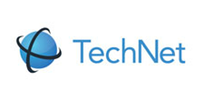… one danger facing the U.S. was that “we could become a risk-averse nation. The entire mood of the country has swung from taking wild risks to taking no risk,” he observed. “And that could be bad for the country.”
An spot on post by Lane Wallace. The entrepreneurial spirit is what made America. Many people can’t relate to a willingness to risk everything in search of exploration, innovation and accomplishment.
If the risks taken are going to bring down an entire financial system for the rest of us, that’s one thing. But if an informed explorer is willing to put their own life, fortune … or even, to quote a memorable document, their sacred honor … on the line for a cause, technology, or chance they think is worth it … perhaps we should rethink our knee-jerk reflex to keep them safer than they wish to keep themselves.
During an economic crisis many people will lose the job security they assumed, and some will turn to entrepreneurship as a stop gap.
NASA managers speak of a balancing act called “risk versus reach.” Too little reach, and you discover nothing significantly new. Too much risk, and you lose the craft and people you need to do the exploring, and you discover nothing at all.
The real key to recovery will be entrepreneurs by choice, not those thrust into self-employment by economic times. How far an entrepreneur is willing to “reach” without reckless risk is the metal of success.







